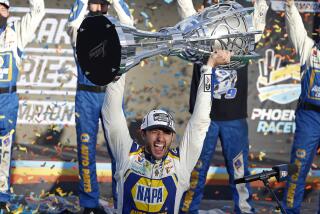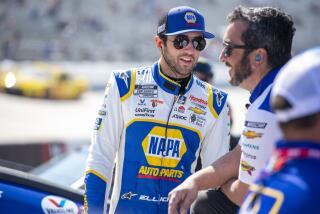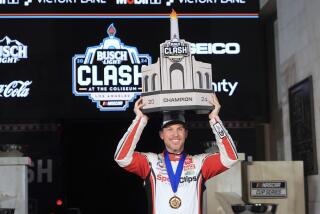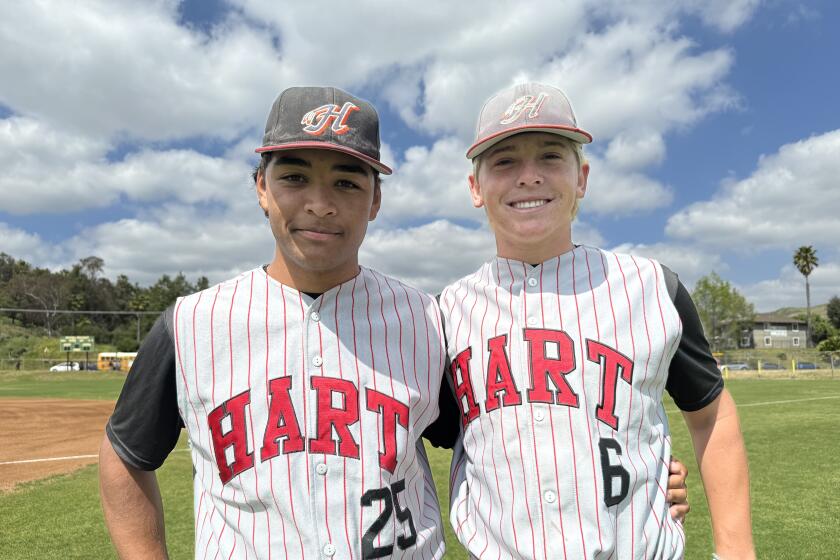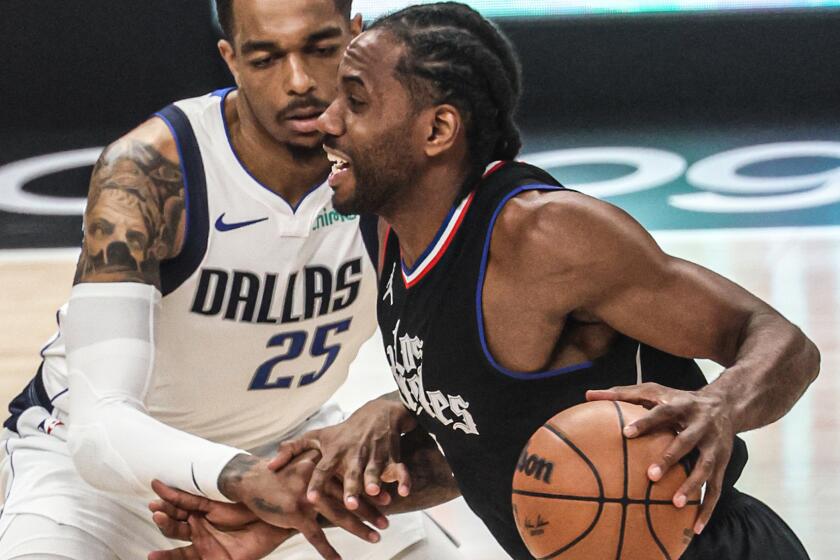Feuds have long been a NASCAR tradition
Jimmie Johnson told Kurt Busch to man up. Boris Said tried charging at Greg Biffle, then called Biffle a “scaredy-cat.” Kevin Harvick and his boss, Richard Childress, took swings at Kyle Busch, Kurt’s younger brother.
The NASCAR boys are having at it, all right.
Even in a sport that has feuds woven into its history, spats in stock-car racing’s premier NASCAR Sprint Cup Series seem to be occurring almost weekly lately and now are culling drivers such as Johnson — and a team owner in Childress’ case — who usually stay above such bickering, at least in public.
And in many cases, NASCAR is willing to let them hash it out without penalties under its “Boys, have at it” policy, a stance the sanctioning body adopted last year to unshackle the drivers’ often-heated emotions at the racetrack.
“Every week people have the chance to make people mad or get revenge,” said driver Carl Edwards, who is fourth in the Cup standings after finishing 36th Sunday at Michigan International Speedway.
Kyle Busch won the race — his fourth victory of the season — and leads the Cup standings by 10 points over Johnson, who is seeking an unprecedented sixth consecutive Cup championship.
The bad blood mostly comes down to NASCAR drivers jawboning one another after rubbing fenders on the track, sometimes at 200 mph. Although a few feuds linger, most don’t last beyond the heat of the moment.
But lately the moments have come in rapid succession. Consider:
• After Johnson and Kurt Busch exchanged hard bumps on the final lap at Pocono Raceway in Pennsylvania two weeks ago, the drivers yelled at each other on pit road after the race.
The usually unflappable Johnson later griped that Busch’s bravery surfaced only when Johnson started to walk away.
“Say it to the man’s face and eye to eye when he is there,” Johnson fumed. “Don’t wait until he walks away.”
Busch was delighted by Johnson’s outburst.
“It means that I’m in his head,” Busch said.
• A week later, Said, a veteran racer but only a part-time Cup driver, went after Biffle in the garage after their cars tangled at Watkins Glen, N.Y., but crew members kept them apart.
With television cameras rolling, Said later berated Biffle, calling him unprofessional and saying that Biffle needed a “whoopin’, and I’m going to give it to him.”
Biffle later said he wasn’t happy with Said either, but that they had talked on the phone and “our deal is over with.”
• Harvick, who has had his share of feuds over the years, parked his Chevrolet in front of Kyle Busch’s Toyota on pit road after the two collided near the end of the race at Darlington, S.C., in May.
Harvick then got out of his car and, just as he took a swing at Busch while Busch was seated in his car, Busch drove forward and shoved Harvick’s car out of the way.
• A few weeks later, the 65-year-old Childress — angry at how Kyle Busch had banged into Childress’ cars in recent races — reportedly grabbed Busch in the Kansas Speedway garage and punched him.
It is widely acknowledged that the most memorable NASCAR race in history, and one that helped put NASCAR on the map among major U.S. sports, was the Daytona 500 in 1979. It was the first time the race was televised live, and it ended with a fistfight between Bobby Allison, his brother Donnie Allison and Cale Yarborough.
The drama of that event — one Bobby Allison likes to remember as “Cale beating on my fist with his nose” — reflected NASCAR’s rough-and-tumble era, Allison recalled. But he also said the drivers’ road rage in those days dissipated quickly.
“You had to put it behind you and go out and do your job” the following week, Allison said.
Now, with TV cameras ubiquitous at NASCAR races and the immediacy of instant communication, even the smallest of driver disputes at races can reach a national audience before many of the spectators have left the speedway, he said.
Johnson said that in theory, “drivers don’t want enemies, issues or anything lingering,” especially now as they are approaching the 10-race Chase for the Cup title playoff.
But with millions of dollars in prize money and corporate sponsorships riding on where a driver finishes, “you just don’t have that luxury at times,” Johnson said.
The result are some feuds that “burn out and fizzle,” he said, but others “are more heated and last longer.”
More to Read
Get our high school sports newsletter
Prep Rally is devoted to the SoCal high school sports experience, bringing you scores, stories and a behind-the-scenes look at what makes prep sports so popular.
You may occasionally receive promotional content from the Los Angeles Times.
